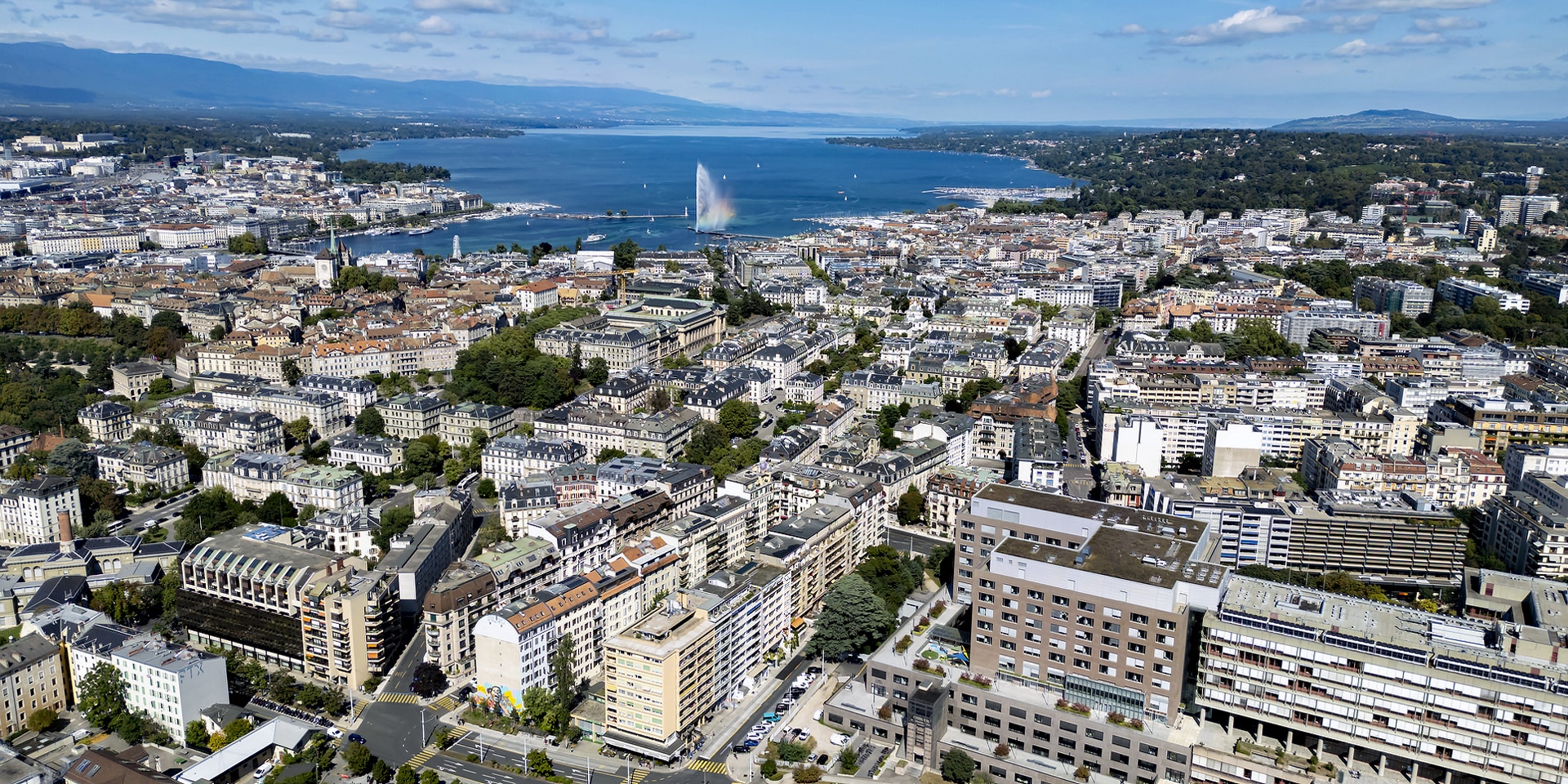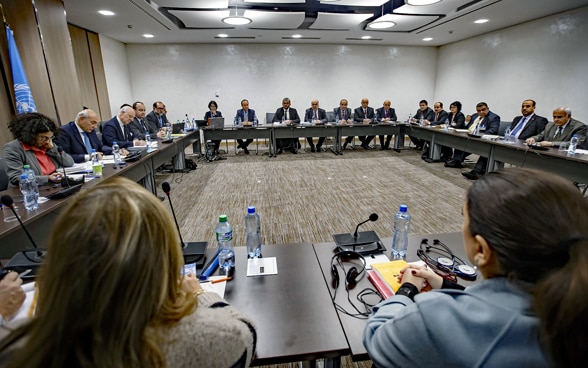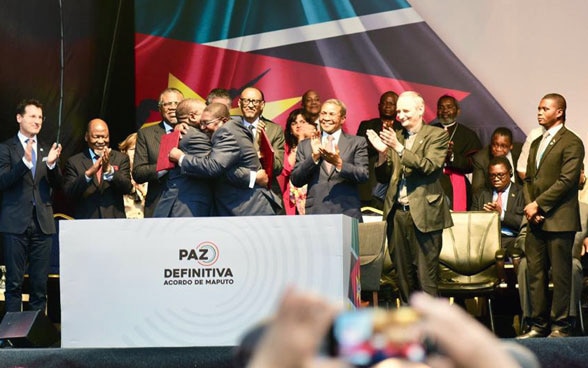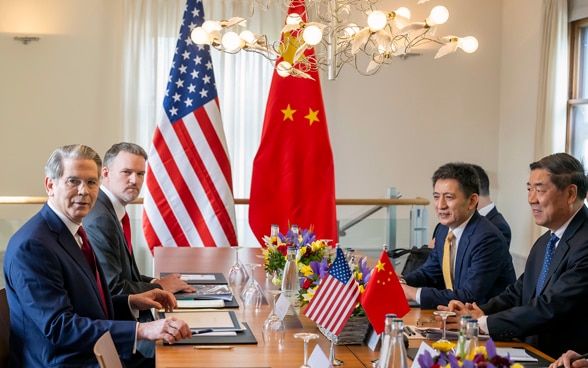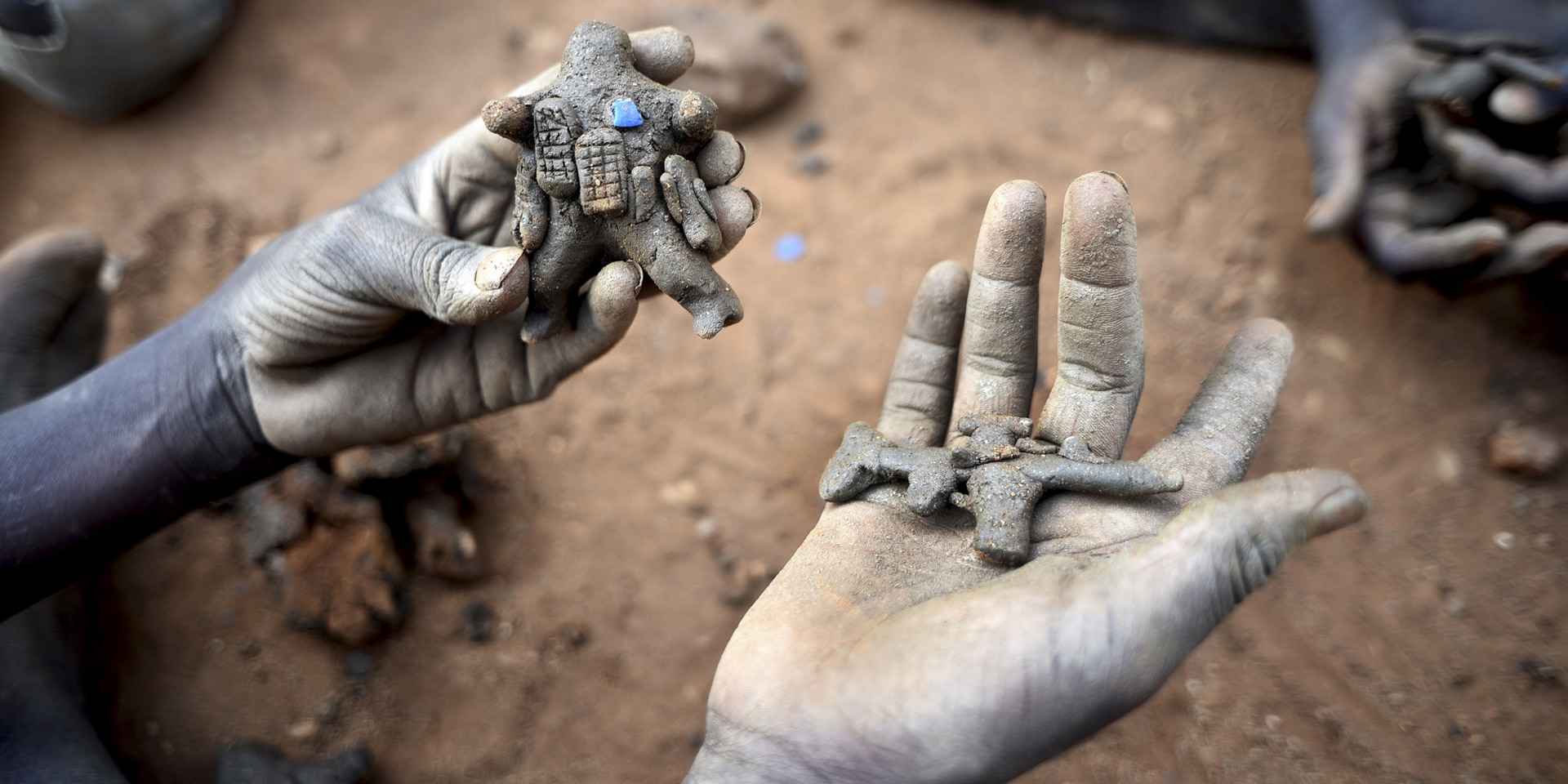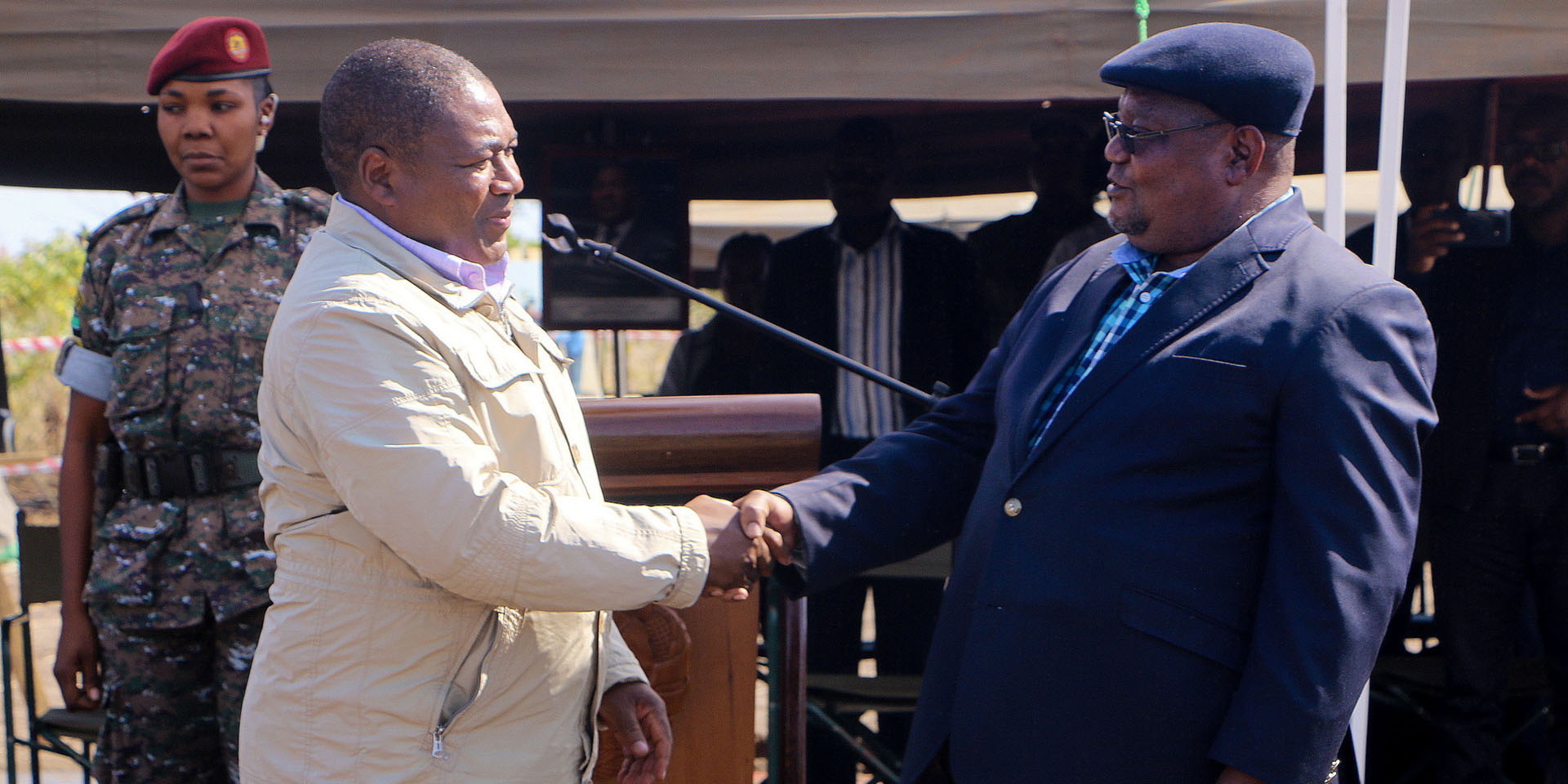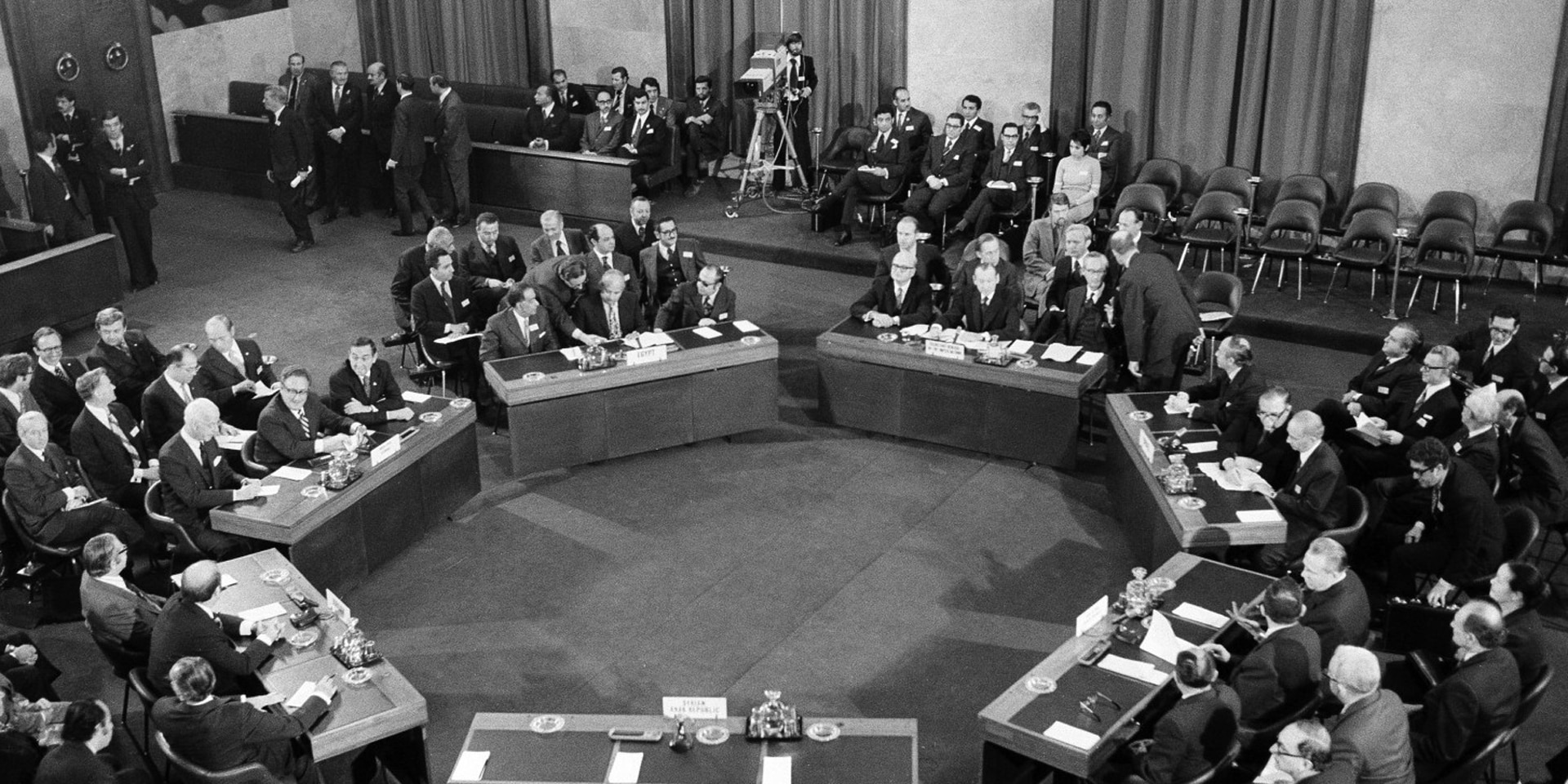Switzerland has continued its commitment in the field of good offices to this day. In 2002, for example, as a host and co-mediator, it was able to negotiate on the Bürgenstock a ceasefire in the Nuba Mountains in Sudan. Between 2008 and 2015, it was the host state for negotiations on the nuclear agreement between Iran, the five permanent members of the UN Security Council, Germany and the EU.
On 16 June 2021, all eyes were on Geneva: On that day, US President Joe Biden and Russian President Vladimir Putin met for bilateral talks at the Villa La Grange on the shores of Lake Geneva. Switzerland, in close cooperation with the American and Russian delegations, had created the conditions for the smooth running of the summit.
On 15 and 16 June 2024, Switzerland organised a Summit on Peace in Ukraine at the Bürgenstock (Canton of Nidwalden). The aim of that heads of state and government meeting, was to develop a common understanding of a path towards a just and lasting peace in Ukraine.

